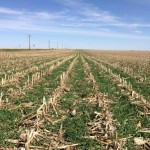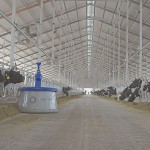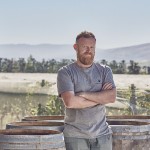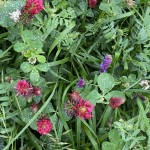HBBFT meets Land for Life with appointment of Di Roadley to its board
Added yesterday
By Bonnie Flaws
Ruakituri Valley hill country farmer Di Roadley is the newest member of the HBFFTs board, taking the seat reserved for Hawkes Bay Regional Council. Di’s commitment to improving the way things are done on farm for greater environmental outcomes makes her a good fit for the Trust and its work.
“I didn’t go out seeking another role. However, the Trust’s objectives align with work I’m doing on the Land for Life Project. They investigate soil carbon and how we manage the grassy parts of our farms, while Land for Life puts a lot of attention on the less-profitable parts of our farms, managing soil, silts, or nutrients that might leave the farm via waterways. If we can influence the research to develop what’s best practice for commercial farmers to maximise soil health, I’m keen to be part of that,” she said.
Land of Life is partnership between HBRC, the Nature Conservancy and Ministry for Primary Industries (MPI), which funds consultants to plan out the best possible land uses for the parts of farms prone to soil erosion and sediment loss.
“The focus, the drivers, are around keeping soil on the hills. It’s part of the erosion control aspirations [of the council] given that any silt that leaves a property and ends up in a waterway is a master stressor, whether that is at local source in a stream or river or further out in the marine environment.”
HBRC says about 250,000 hectares of Hawke’s Bay hill country is at high risk of erosion, and about 6.8 million tonnes of sediment eventually enters the region’s waterways every year.
In the main, this means planting trees and fencing to exclude stock from waterways. However, there are significant barriers for farmers to doing this, namely cost, time and labour resources - especially on large hill country properties. The LFL project supports commercial farmers to make informed choices around how to manage erosion on farm, while maintaining commercial viability.
“It’s not just about trees, it also looks at the farming business and provides options for what might happen if you planted different species including natives in targeted blocks. It estimates costs and returns over 30 years on that land, including the reduction in pasture that you have by putting land into trees,” she says.
Options put forward for farmers can include space planting, a practice that allows livestock to continue to graze under poplars or willows for the medium-term, or planting up blocks in natives for biodiversity and the longer term. Or even doing both at the same time.
“Of course the soil under those trees is generally not as premium as that of open pasture. But the theory being that if you could take out a farming operation the less profitable parts because of contour or erosion, and still get a profit on them through ETS or capital at the other end by harvest, and focus on the more grassy bits of the farm - how does that look on your balance sheet?”
Another aspect of LFL is that farm reports are produced for farmers by top consultants with minimal cost involved for them. Nor is there any obligation to take that plan forward, but of course the council would hope that most of these plans are progressed and that the result is more trees in the landscape and less erosion.
There are currently 12 pilot farms across the region – most being steep hill country farms that have sediment leaving the property - including her own, she says.
MPI has put just shy of $1 million towards the LFL project to upscale from the 12 pilots farms to around 80 Hawkes Bay farms in the second phase. By 2030, the hope is that the plans would have been developed with 300 farm businesses.
Di, whose property is Savory Certified, says there is an absolute awareness of the need and a desire to make change, but farmers can struggle when they’re dealing with thousands of hectares of land and there are already so many jobs to do on farm. The LFL farm plans are a way of showing them there is a viable path forward.
Join the conversation
Be the first to leave a comment.
Leave a comment
All comments are reviewed before they are published on the website. Your email address will not be published.
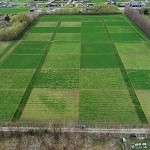
Innovative Approaches to Sustainable Farming: Integrating Soil Science, Pasture Management, and Dairy Research
